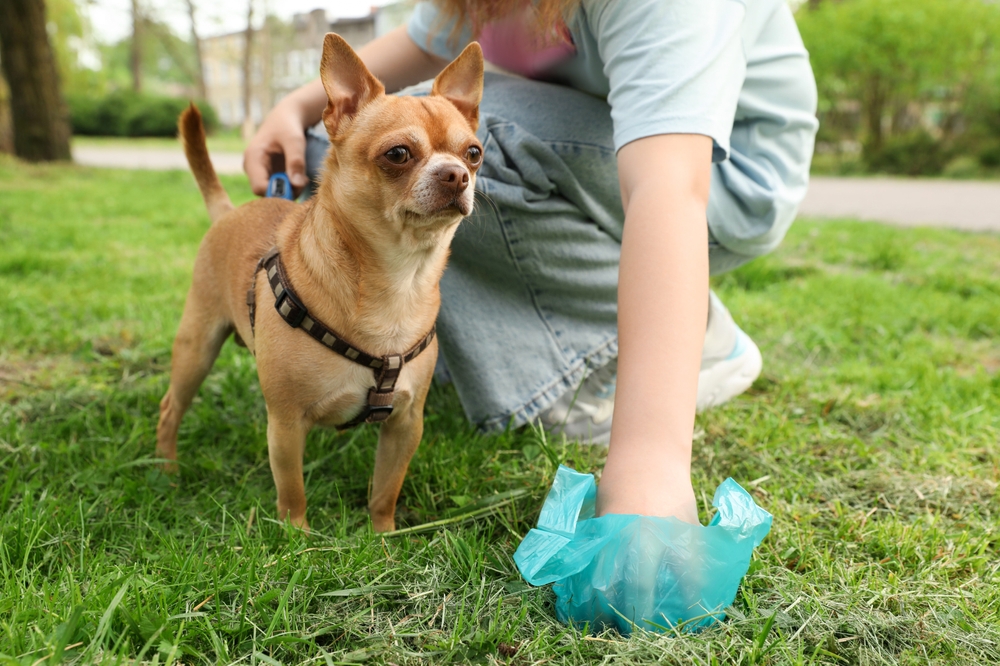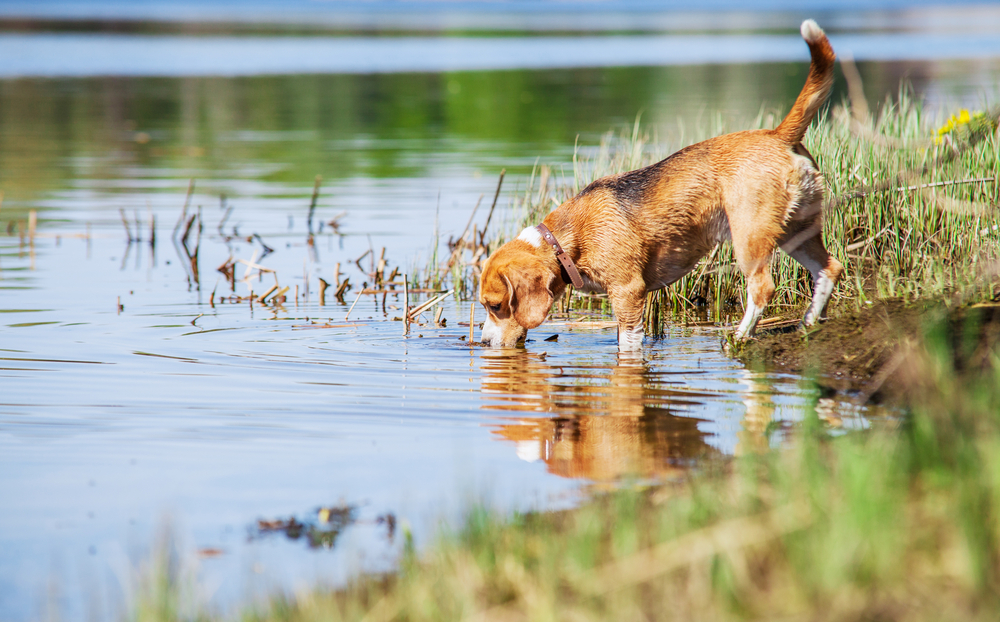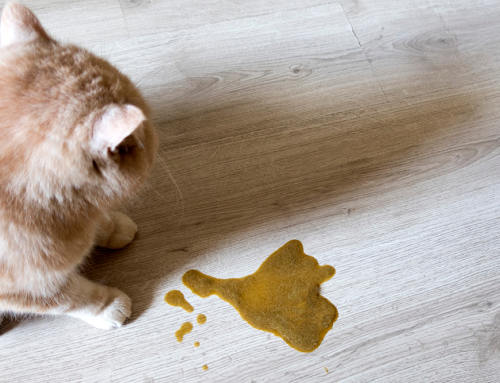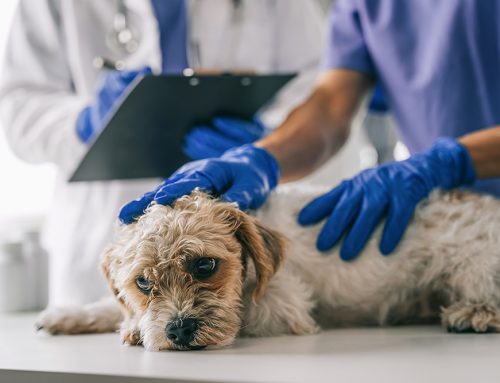Dogs who frequent dog parks, daycare, forest preserves, and other popular dog gathering spots are at risk for contagious intestinal parasites. Recent studies show that the most common of these parasites is Giardia—a single-celled organism that transmits easily from one dog to another, and can survive for months in the environment, waiting to infect its next victim. Many Giardia infections are mild, but dogs with more sensitive systems can become ill, and all infected dogs can transmit disease. The Wellness Animal Hospital team shares a comprehensive guide to Giardia in dogs.
Canine giardiasis risk and prevalence
Studies have shown that Giardia is the most common intestinal parasite found in dogs, and is most common in dogs who visit dog parks—but anywhere dogs have been, Giardia is there. According to the Companion Animal Parasite Counsel (CAPC), around 3% of dogs in our area test positive for Giardia, and may be higher in social dog populations. Dogs who visit dog parks, daycare, boarding facilities, and other dog-friendly areas are at highest risk, but any dog can encounter Giardia cysts in the environment.
Identifying giardiasis in dogs
Dogs with giardiasis may not show any signs, but others develop watery, acute, chronic, or intermittent diarrhea. Most affected dogs continue to eat and act normally, but those with severe diarrhea may lose their appetite or lack energy. Giardia exists in two forms—the trophozoite, which attaches to the pet’s intestinal walls, and the cysts, which pass in the stool to the environment and infect other pets. Giardia cysts can be detected on a routine fecal flotation test, which is the standard test performed when you bring in a stool sample. A second test looking for Giardia proteins or genetic material can help confirm the diagnosis if a pet’s stool is too watery, or if cysts aren’t found on the first test.
Can your dog give you Giardia?
Giardia is the same kind of parasite that causes the typical “traveler’s diarrhea” when you drink contaminated water while vacationing in a foreign country. Dogs can also pick up this parasite from water, because the cysts thrive in cool surroundings. However, Giardia has many different subtypes, and each prefers a different species. The subtype that infects dogs rarely infects humans, so your human family members are low-risk. However, take extra precautions if young children, seniors, or immunocompromised people are living in your home—ensure they always wash their hands after interacting with the dog, and always clean up after your pet.
Canine giardiasis treatments
Our veterinary team recommends treating Giardia in pets who have infection signs and who test positive for Giardia cysts. Treatment may consist of one or two three- to five-day rounds of medication designed to kill the parasite. Some dogs may need a special diet or supplements to help their intestines heal after the Giardia is gone. Asymptomatic pets who test positive on a routine screening test may not require treatment, but that will be determined by their lifestyle and living situation.
Giardia control and prevention in dogs

Giardia spreads far more easily than other intestinal parasites, because the cysts are immediately infective when they pass in the pet’s stool, while other parasites, such as roundworms, require several weeks to mature before the eggs are infective. Giardia cysts can persist for months in cool, moist environments, on various surfaces, and in soil or water, and can infect pets who contact these areas. The cysts can also stick to a pet’s fur and infect your pet or other pets who sniff or lick.
Giardia reinfections are also common, because the cysts spread so easily and stay alive for so long. To prevent reinfection and help control the spread, always pick up your dog’s stools and dispose of them right away. Wash your pet’s bedding frequently and keep your home’s floors and surfaces clean. Avoid dog parks and social situations if your dog has Giardia, and follow our sanitation guidelines to prevent reinfection. After your dog has completed their Giardia treatment, bathe them thoroughly to remove any last cysts in their fur.
Giardia is lurking everywhere and is almost impossible to avoid, especially if your dog is active and social. Annual wellness visits and parasite testing are the best way to identify active Giardia infections and avoid disease spread, so schedule a visit with our Wellness Animal Hospital team as soon as your dog is due for wellness screening.
Make an appointment anytime your dog has persistent diarrhea, so we can check for possible parasites in your dog and avoid infection or reinfection, and to stop the spread of Giardia in its tracks.







Leave A Comment